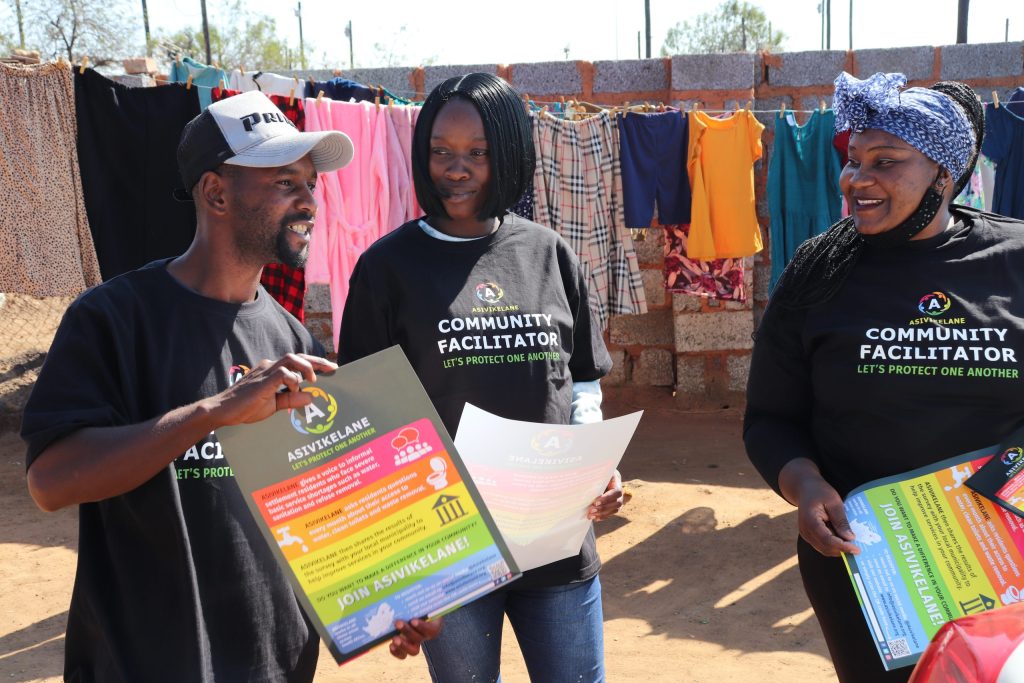The Asivikelane (Let’s Protect Each Other) initiative gives a voice to informal settlement residents in South Africa’s major cities who face severe basic service shortages. Planact is working with 25 Community Facilitators in nearly 50 informal settlement communities in the City of Ekurhuleni, Tshwane and Johannesburg to monitor and engage municipal officials on waste management, sanitation and water services. This project aims to create partnerships for municipal accountability by empowering Community Facilitators to work with their elected leaders and key municipal officials to actively monitor outsourced services. Background: When COVID-19 struck in early 2020, the International Budget Partnership South Africa (IBPSA) started working closely with Planact, the SASDI Alliance and Afesis-corplan on Asivikelane, an initiative designed to help informal settlement residents faced with severe basic service shortages. While these shortages had existed prior to the pandemic, COVID-19 made the need for clean water, good sanitation and timely waste removal even more urgent.Asivikelane connects with residents through WhatsApp, SMS and phone calls in order to better understand their needs. Residents respond weekly to three questions about access to water, clean toilets and waste removal, and the results are published monthly and shared with the relevant municipalities as well as national government. Asivikelane particularly strives to access the voices of women, people with disabilities and the elderly, since these groups tend to bear the brunt of poor service delivery.“Asivikelane is about holding the government accountable,” says Shumani Luruli, Planact’s Programme Coordinator. “It is about holding the authorities on the ground accountable. It is about holding the cleaner or the worker who has to ensure that there is service delivery every day accountable. And it is about seeing value for money. Money that is spent by the local government in our name. Our name – us in the communities.”“Asivikelane plays a big role in our lives because now we, as informal settlement residents, know more about monitoring service delivery in our communities. We know about tender documents. We know about the contractor who was awarded the tender by the municipality. We know how long the contractor is going to stay. After three years, we know that we must go back and ask the municipality for the next tender document,” Mpho Sithole, Tsakane resident and activist.
